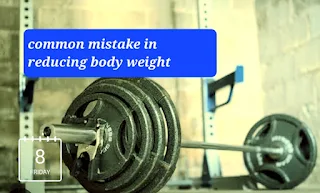An increase in body weight can be caused by a variety of factors, such as consuming more calories than are burned, hormonal imbalances, or reduced physical activity. Genetics and age may also play a role. Eating high-fat foods and large portions generally contribute to weight gain; however, slow metabolism, certain medications and medical diseases can also affect an individual's body weight. Lifestyle choices such as poor sleep habits or stress levels can cause undesired changes in one’s overall health that could potentially lead to increased body fat accumulation. Environmental toxins have been linked to elevated hormone disruption thus resulting in higher obesity prevalence which could explain increasing average weights over time.
Eating too few calories which can lead to weight loss plateau - Underestimating the amount of caloric intake and ignoring portion size - Incorporating inflexible routines that do not account for lifestyle changes - Exercising excessively without giving your body enough recovery time - Not addressing underlying issues such as stress, hormones or sleep deprivation - Falling for quick fix diet plans with unrealistic results
Why people having weight more
-Poor quality diet choices, such as excessive processed or fast food intake -Skipping meals in order to reduce calories consumed -Focusing solely on one type of exercise and not incorporating an overall fitness program -Not allowing for rest days when working out consistently -Inadequate hydration levels which can slow down metabolism. -Consuming too much sugar throughout the day instead of opting healthier alternatives
Common mistakes people make when trying to reduce their bodyweight
1. Not Eating Enough
- Many people attempt to reduce their bodyweight by limiting the amount of food they consume, often failing to eat adequate amounts throughout the day; this can lead to fatigue and nutrient deficiencies.
2. Skipping Meals
– It seems like skipping meals might be a great way lose weight quickly, but it is in fact counterproductive for most people trying to reach that goal! When you skip out on meals your metabolism slows down and your body starts storing more fat instead of burning calories.
3. Incorporating Too Much Cardio Exercise –
While cardio exercise such as running or biking are good ways to burn calories, excessive amounts may put additional strain on muscles and joints leading to injuries. Instead, look into incorporating strength training exercises into your routine which will help build muscle mass while also increasing calorie burning potential when coupled with regular light-to-moderate cardio activities several times per week.
4. Underestimating Calorie Intake–
Miscalculating portion sizes or not tracking snacks during the day could add up without prompting suspicion! Paying closer attention how many calories each meal contains will ensure accuracy in meeting caloric goals set forth alongside weight loss plans/programs being followed..
5 Failing To Drink Adequate Amounts Of Water – Proper hydration is essential for overall health
and wellness regardless if someone’s primary fitness aim is clear weight loss results or other benefits from working out regularly See also secret of loose weight faster
How to prevent increase in body weight
1. Eating healthy, balanced meals; replace sugary snacks and processed foods with fruits and vegetables. 2. Doing regular exercise such as going to the gym or taking a brisk walk for 30 minutes each day. 3. Drinking plenty of water (8-10 glasses) throughout the day instead of beverages that are high in sugar such as sodas or energy drinks. 4. Cutting down on portion sizes when eating out - it's easy to over eat! 5. Limiting your alcohol intake, which can be loaded with empty calories if not moderated properly









0 Comments